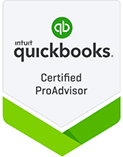Call to Action
Physicians should start thinking about their succession planning as many as ten years before they intend to retire. Some physicians may leave their practices by simply closing the practice, potentially giving away something of great value to someone else. The physician would have no financial return for the value of the practice and years of effort. The better strategy is for the physician to find a buyer or successor, well before their retirement.
The Long-Term Payout
One strategy many practitioners choose is to hang up their white coat with semi-retirement. The physician then stays involved in management on a part-time basis (and recieves appropriate compensation for that), perhaps as an expression of goodwill to the practice and its patient community, seeing only the type of patients he or she may want to, for an extended number of years. Sometimes the payout for this method can be far greater than any other, and it potentially offers the greatest opportunity for continuity for the younger physicians, while they are absorbing patients from the reduced work schedule of the semi-retired doctor.
Cross-Purchase
Physicians can also end their partnership interest in a practice by selling it to an existing partner, also known as a cross-purchase agreement, which gives the younger physicians more of an interest in the practice. Physicians can also sell their partnership interest to the partnership itself, and the partnership then gives all remaining partners proportionate shares of that interest.
The Outside Salesman
Selling a partnership to an outside party, including a hospital or another healthcare provider, is becoming more popular. This strategy is used when a group of physicians is looking for enhanced benefits and reduced professional liability. Short-term benefits of “the deal” are known to be secure, but the higher-paid physicians potentially assume a long-term employment risk, potentially needing to move to another institution or another state at some point down the road. One should certainly review the financials of the entity they are merging with to ensure profitability and minimal long-term risk. This risk also expands potentially into the area of loss of personal wealth. Physicians in opulent areas may need to sell their high-priced homes due to employment severance and relocation and incur market losses that were unexpected.
How About an ESOP?
Many physicians expect to sell their practices and that the proceeds from the sale will provide a significant part of their retirement funds. One liquidity option available to physicians in larger practices is an employee stock ownership plan (ESOP), which is a flexible and broad-based succession planning tool that requires years of planning in advance of the physicians’ retirement. An ESOP is a tax-qualified defined contribution retirement plan designed for employees to invest primarily in the stock of the sponsoring employer. The shares held in the plan are allocated to employees over time based on their compensation and years of service. Employees who are vested in the plan and who leave the company can sell their shares back to the employer or the ESOP. If the ESOP holds 30 percent or more of the company’s stock, and certain other requirements are met, the sellers can defer tax on the gain they have made from the sale to an ESOP. In addition to the deferred tax advantage, the purchase can be more attractive to the purchasing corporation, because the corporation can purchase the stock using pretax corporate dollars.
At MDcpas, we work with you to help define your best avenue for retirement, taking into account many factors that include current financial status, the state of the future of medicine, practice size and current and future personal goals.






